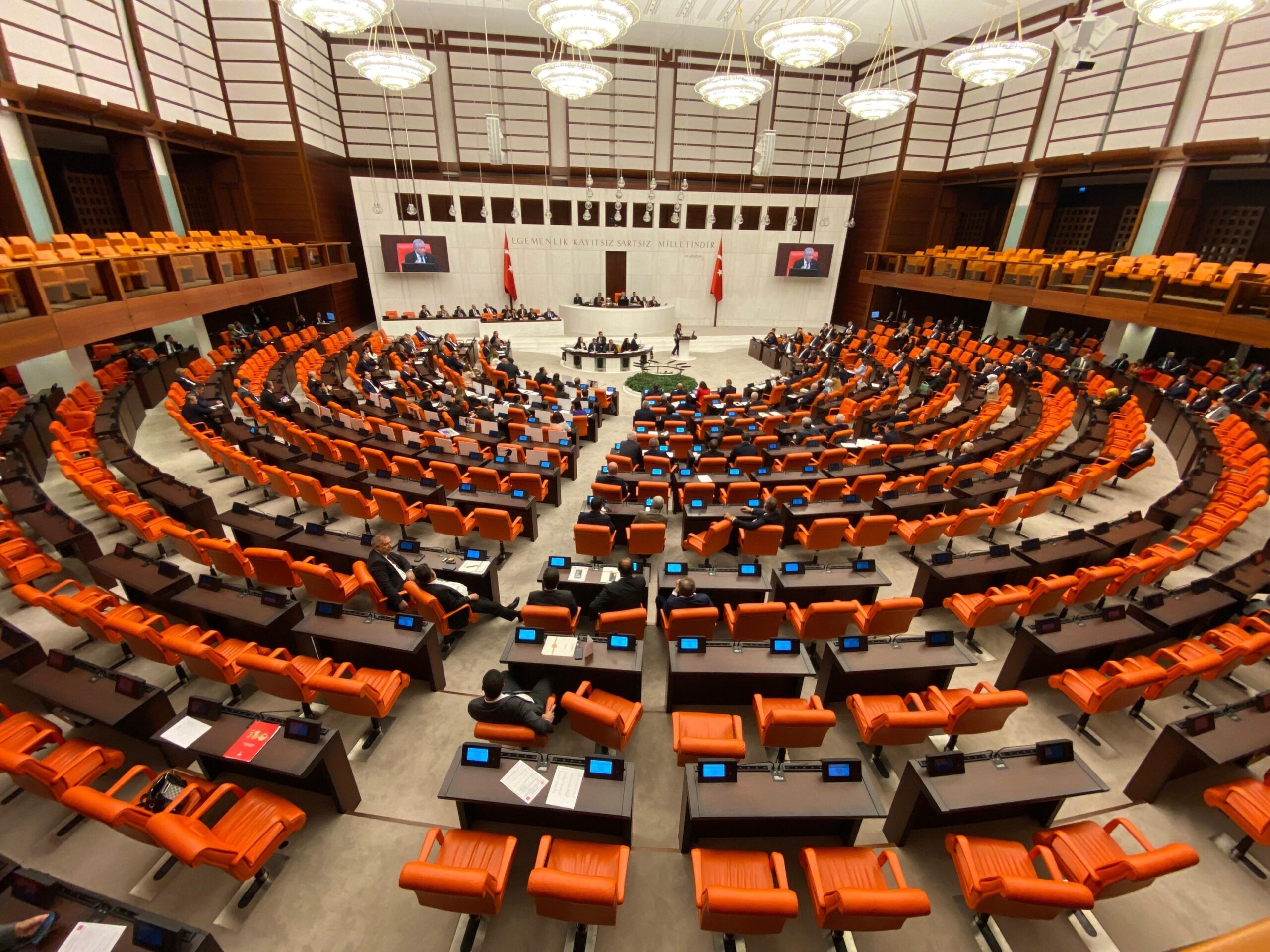Introduction to Türkiye’s Cybersecurity Law No. 7545
On March 19, 2025, Türkiye took a bold step toward fortifying its digital landscape with the enactment of Cybersecurity Law No. 7545. Published in the Official Gazette, this landmark legislation aims to shield public institutions, private entities, and individuals from escalating cyber threats. As someone who’s navigated the murky waters of online security—once losing sleep over a hacked email account—I can relate to the urgency behind this law. It’s a response to a world where data breaches and cyberattacks are as common as morning coffee, and Türkiye is determined to secure its digital borders.
Why Türkiye Needed a New Cybersecurity Law
The digital age has brought incredible advancements, but it’s also opened Pandora’s box of cyber risks. Türkiye has faced its share of high-profile incidents, like the 2024 hospital data breach exposing millions of patient records and the 2025 satellite data leak. These events underscored the need for a robust legal framework. Cybersecurity Law No. 7545 steps in to address these vulnerabilities, aiming to protect critical infrastructure and align with global standards like the EU’s GDPR. It’s not just about patching holes—it’s about building a fortress.
Rising Cyber Threats in Türkiye
From ransomware attacks to phishing scams, Türkiye’s digital ecosystem has been under siege. The law responds to incidents like the 2024 breach that compromised 108 million citizens’ data, highlighting the fragility of existing protections. This legislation is a wake-up call, ensuring that public and private sectors are equipped to fend off threats. It’s like upgrading from a flimsy lock to a state-of-the-art security system.
Global Context and Inspiration
Türkiye’s law draws inspiration from global frameworks like the GDPR and NIST Cybersecurity Framework. By aligning with international standards, the country aims to bolster its digital sovereignty while fostering trust in its growing tech sector. For businesses operating globally, this means Türkiye is becoming a safer digital hub, but compliance will be key.
Key Provisions of Cybersecurity Law No. 7545
The law is a comprehensive blueprint for digital defense, covering everyone from government agencies to small businesses operating in cyberspace. It’s not just a set of rules—it’s a cultural shift toward prioritizing cybersecurity as a cornerstone of national security.
Scope and Applicability
The law applies to public institutions, private companies, professional organizations, and even individuals active in cyberspace. However, intelligence operations by entities like the National Intelligence Organization are exempt. This broad scope ensures that no corner of Türkiye’s digital landscape is left unprotected.
Establishment of the Cybersecurity Directorate
A new Cybersecurity Directorate, established under Presidential Decree No. 177 on January 8, 2025, is the law’s backbone. It consolidates powers previously held by the Information and Communication Technologies Authority and the Digital Transformation Office. The Directorate oversees everything from audits to incident response, acting as the nation’s cybersecurity watchdog.
Cybersecurity Council
Chaired by the President, the Cybersecurity Council sets national policies and resolves conflicts between public entities. Comprising top officials, it ensures a unified approach to cybersecurity. Think of it as a war room for digital defense, strategizing to keep Türkiye’s cyberspace secure.
Certification and Compliance Requirements
Businesses in the cybersecurity sector must obtain certifications and licenses within a year of secondary regulations being issued. Non-compliant companies face harsh penalties, including being barred from operations or forced into liquidation. It’s a high-stakes game—get certified or get out.
Data Retention and Privacy
The law mandates that cybersecurity-related data, like logs and threat intelligence, be retained for up to two years. After that, it must be destroyed unless needed for investigations. This balances security needs with privacy concerns, ensuring data isn’t hoarded indefinitely.
Penalties and Sanctions: The Stick Behind the Law
Türkiye’s new law doesn’t just encourage compliance—it demands it. The penalties are steep, designed to deter negligence and punish violators.
Criminal Penalties
- Failure to Provide Information: 1–3 years imprisonment and fines of 500–1,500 days.
- Unauthorized Operations: 2–4 years imprisonment and fines of 1,000–2,000 days.
- Data Breach Violations: 3–5 years for sharing personal or critical data post-breach without authorization.
- Spreading False Information: 2–5 years for creating or disseminating false content about breaches to cause panic.
Administrative Fines
- Non-Compliance with Audits: 100,000–1 million TRY.
- Failure to Obtain Approvals: 10–100 million TRY.
- Neglecting Cybersecurity Measures: Up to 5% of a company’s annual gross revenue.
These penalties hit hard, especially for businesses. A small startup could be crippled by a 100 million TRY fine, while individuals face real jail time for reckless behavior. It’s a stark reminder that cybersecurity isn’t optional.
Comparison with Global Cybersecurity Frameworks
How does Türkiye’s law stack up against global standards? Let’s break it down.
| Aspect | Türkiye’s Cybersecurity Law | EU GDPR | NIST Framework (USA) |
|---|---|---|---|
| Scope | Public, private, individuals | EU citizens’ data | Critical infrastructure |
| Regulatory Body | Cybersecurity Directorate | Data Protection Authorities | NIST (advisory) |
| Penalties | Up to 100M TRY, 15 years jail | Up to €20M or 4% revenue | Voluntary compliance |
| Data Retention | Max 2 years | As needed | Varies by organization |
| Focus | National security, compliance | Privacy | Risk management |
Türkiye’s law is stricter in its criminal penalties compared to GDPR’s focus on fines and NIST’s voluntary approach. It’s tailored to a country prioritizing national security amid rising cyber threats.
Pros of Türkiye’s Approach
- Comprehensive Scope: Covers all cyberspace actors, leaving no gaps.
- Strong Enforcement: Heavy penalties ensure compliance.
- Centralized Authority: The Cybersecurity Directorate streamlines oversight.
Cons of Türkiye’s Approach
- Potential Overreach: Vague terms could lead to abuse, especially against journalists.
- Compliance Burden: Small businesses may struggle with certification costs.
- Privacy Concerns: Broad data access powers raise red flags.
Controversies and Criticisms
Not everyone is cheering for this law. Critics, including the Committee to Protect Journalists and opposition parties, argue it could stifle free speech. The provision criminalizing “false” reporting on data breaches is particularly contentious. Imagine a journalist uncovering a government data leak—under this law, they could face jail time if authorities deem their report “false.” This has sparked fears of censorship, especially given Türkiye’s existing disinformation law from 2022.
Public and Expert Reactions
Opposition MP Utku Çakırözer called the law a tool to “criminalize journalism,” citing its vague language. Civil society groups like the Media and Rights Studies Association warn it equates whistleblowers with cybercriminals. On the flip side, proponents argue it’s a necessary shield against real threats, pointing to the 2024 breach that exposed 108 million citizens’ data.
Practical Implications for Businesses and Individuals
For businesses, compliance is non-negotiable. Companies must conduct risk analyses, establish incident response teams, and secure certifications. For individuals, the law means heightened scrutiny of online activities. If you’re running a small e-commerce site in Istanbul, you’ll need to invest in cybersecurity measures or risk hefty fines. It’s daunting but necessary in a world where a single breach can ruin a business.
Best Tools for Compliance
- Cybersecurity Software: Tools like CrowdStrike or Palo Alto Networks offer robust protection.
- Audit Services: Firms like Bıçak Law provide compliance guidance tailored to Türkiye.
- Training Platforms: Platforms like KnowBe4 help train employees on cyber hygiene.
Where to Get More Information
For detailed guidance, visit the official Cybersecurity Directorate website or consult legal experts like Paksoy or Gen Temizer. The Directorate’s secondary regulations, expected within a year, will clarify implementation details. Businesses should also monitor updates on the Official Gazette for new provisions.
People Also Ask (PAA)
What is the new Turkish Cybersecurity Law?
Cybersecurity Law No. 7545, enacted on March 19, 2025, is Türkiye’s first comprehensive cybersecurity framework. It aims to protect digital infrastructure, mandate compliance, and impose strict penalties for violations. It covers public and private entities and individuals in cyberspace.
How does the law affect businesses in Türkiye?
Businesses must obtain certifications, conduct risk analyses, and report incidents promptly. Non-compliance can lead to fines up to 100 million TRY or 5% of annual revenue, making robust cybersecurity measures essential.
What are the penalties for violating the Cybersecurity Law?
Penalties include imprisonment of 1–15 years and fines up to 100 million TRY, depending on the offense. Administrative fines target non-compliant businesses, while criminal penalties apply to individuals and entities.
How does the law impact freedom of speech?
Critics argue the law’s vague language, especially around “false” data breach reporting, could criminalize journalism and restrict free speech. The government insists it targets misinformation, not legitimate reporting.
FAQ Section
What is the main goal of Cybersecurity Law No. 7545?
The law aims to strengthen Türkiye’s digital defenses by protecting critical infrastructure, mitigating cyber threats, and aligning with global standards. It establishes a centralized framework under the Cybersecurity Directorate.
Who does the law apply to?
It applies to public institutions, private companies, professional organizations, and individuals operating in cyberspace, excluding specific intelligence activities.
How can businesses comply with the new law?
Businesses should invest in certified cybersecurity solutions, conduct regular audits, and train staff. Consulting legal firms like Erdem & Erdem can help navigate compliance requirements.
What happens if a company fails to comply?
Non-compliant companies face fines up to 100 million TRY or 5% of annual revenue, potential liquidation, and a ban on cybersecurity-related operations.
Is the law aligned with international standards?
Yes, it draws from frameworks like GDPR and NIST, focusing on national security and critical infrastructure protection while encouraging local cybersecurity solutions.
Conclusion: A New Era for Türkiye’s Digital Security
Cybersecurity Law No. 7545 marks a turning point for Türkiye, transforming it into a nation that takes digital threats seriously. While its strict measures and hefty penalties signal a no-nonsense approach, the law’s potential to curb free speech has sparked valid concerns. For businesses and individuals, the message is clear: adapt or face the consequences. As someone who’s felt the sting of a cyberattack, I see this law as a double-edged sword—vital for protection but requiring careful implementation to avoid overreach. Türkiye’s digital future is brighter, but only if balance is maintained.
For more details, check the Official Gazette or consult legal experts at firms like Bıçak Law (www.bicakhukuk.com) or Gen Temizer (www.gentemizer.com). Stay secure, stay compliant, and let’s keep Türkiye’s cyberspace safe.









Leave a Reply